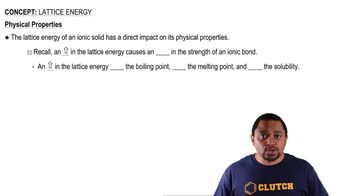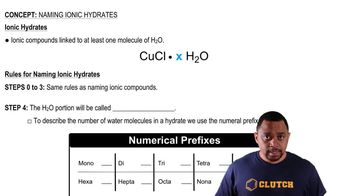Textbook Question
Two beakers, one with pure water (blue) and the other with a solution of NaCl in water (green), are placed in a closed container as represented by drawing (a). Which of the draw- ings (b)–(d) represents what the beakers will look like after a substantial amount of time has passed?
1
views





